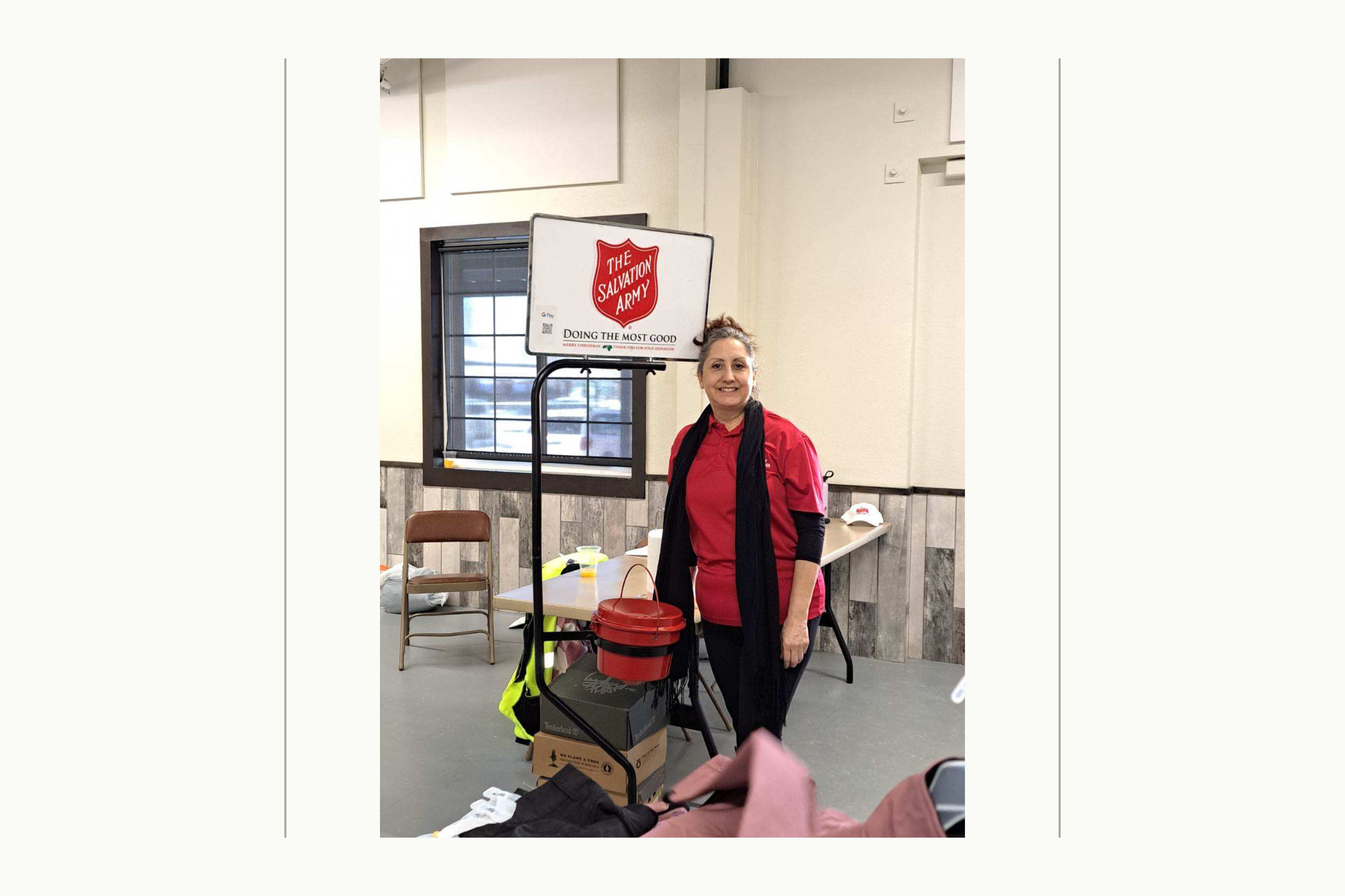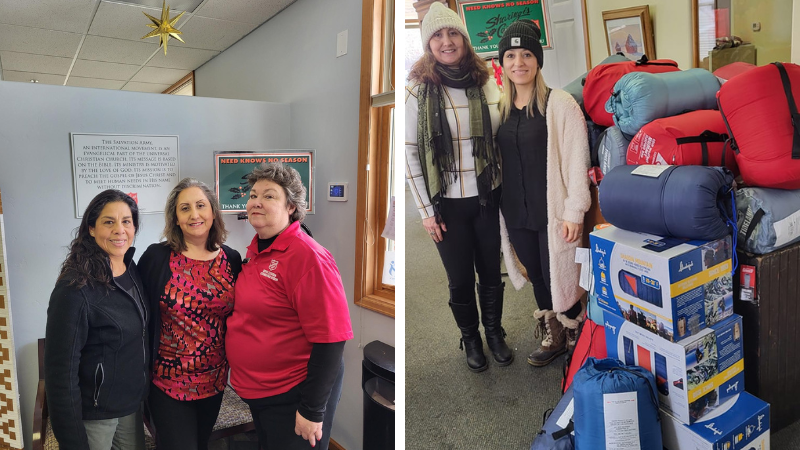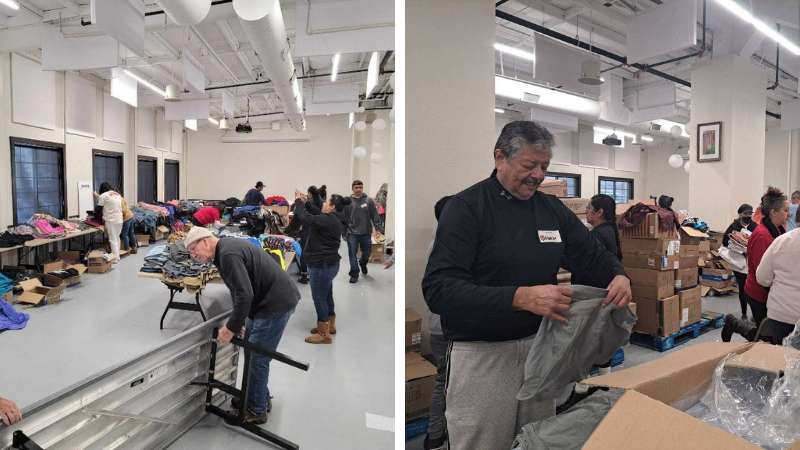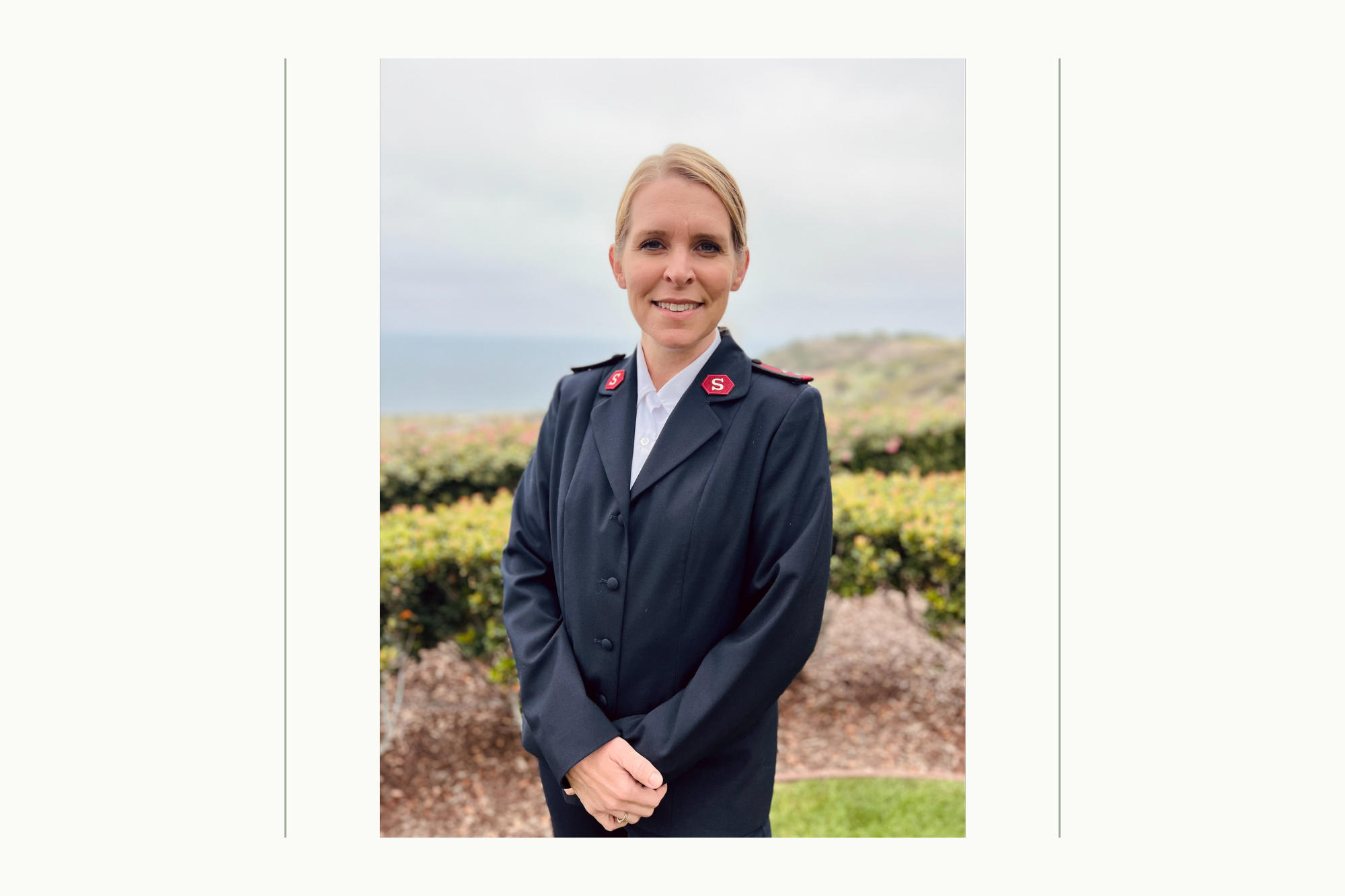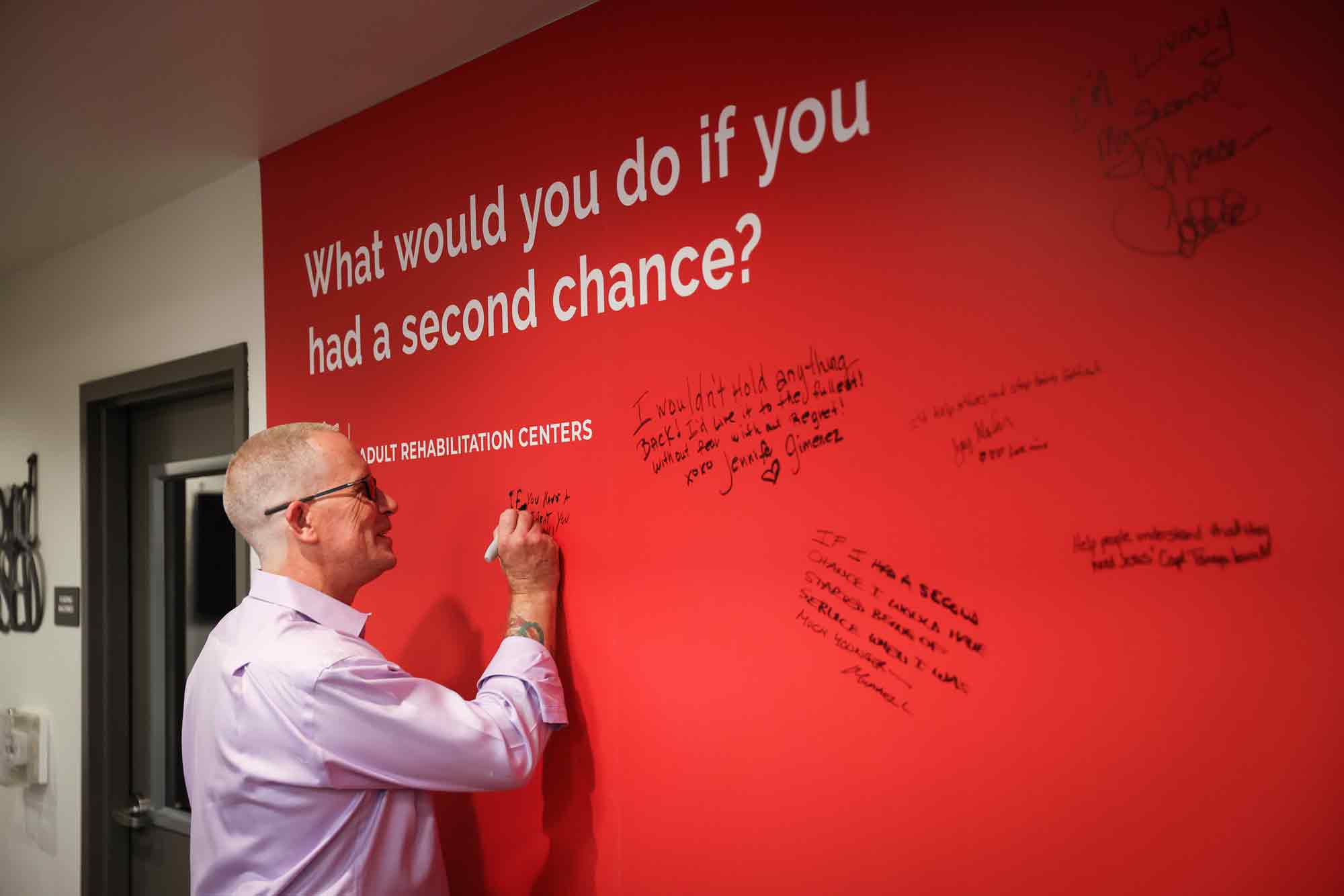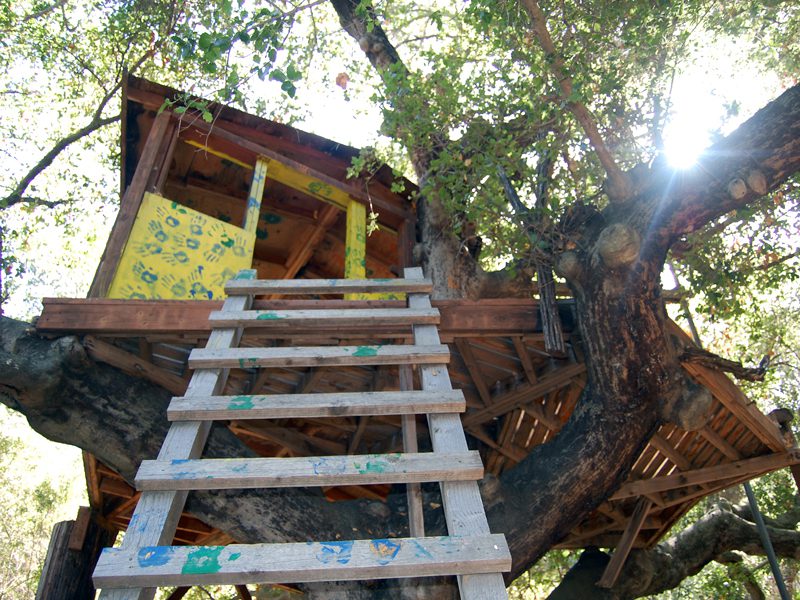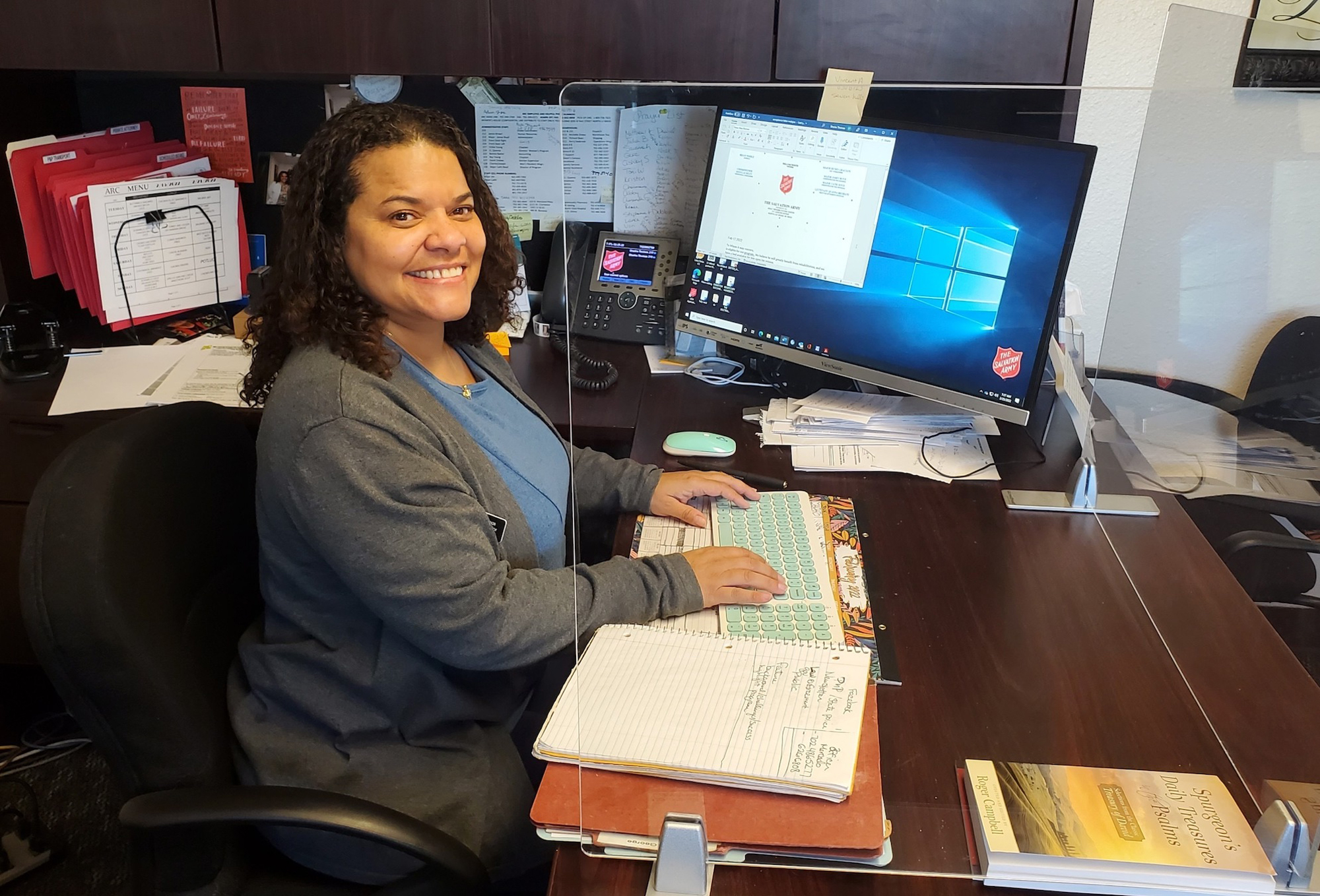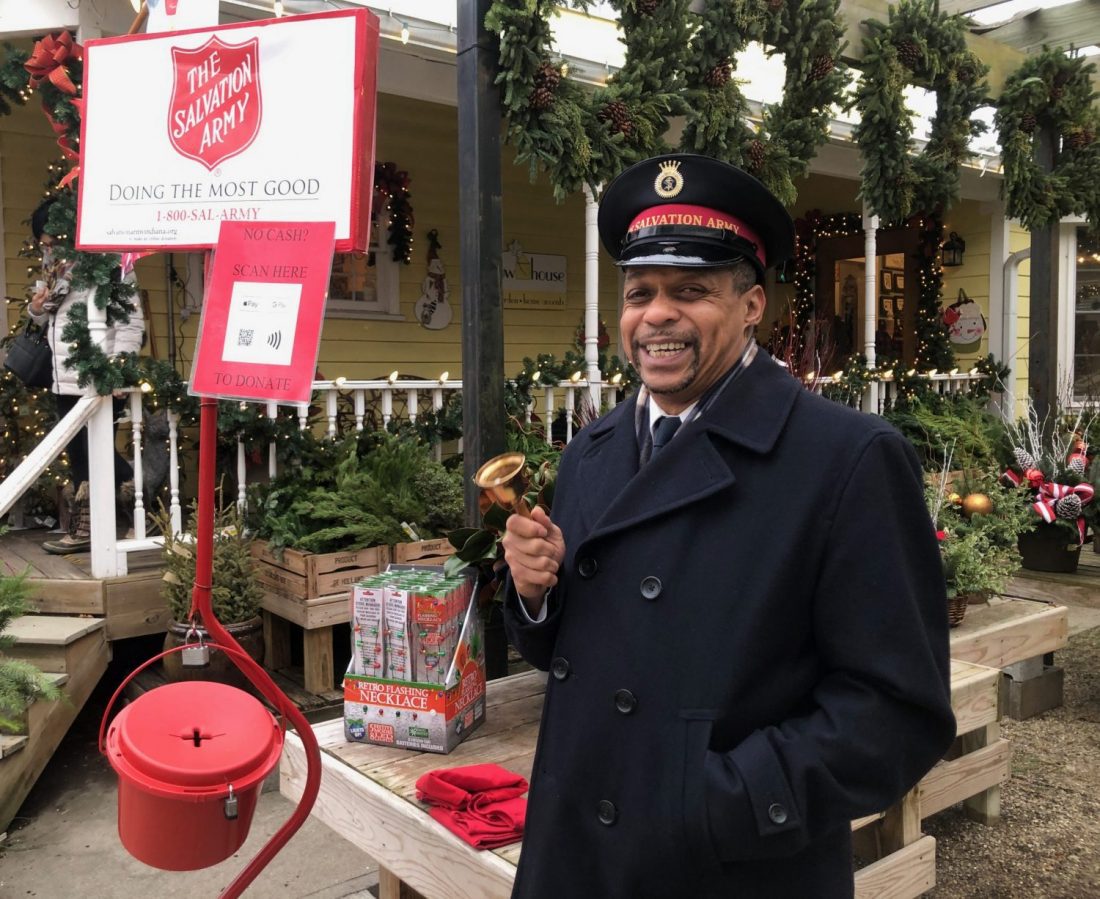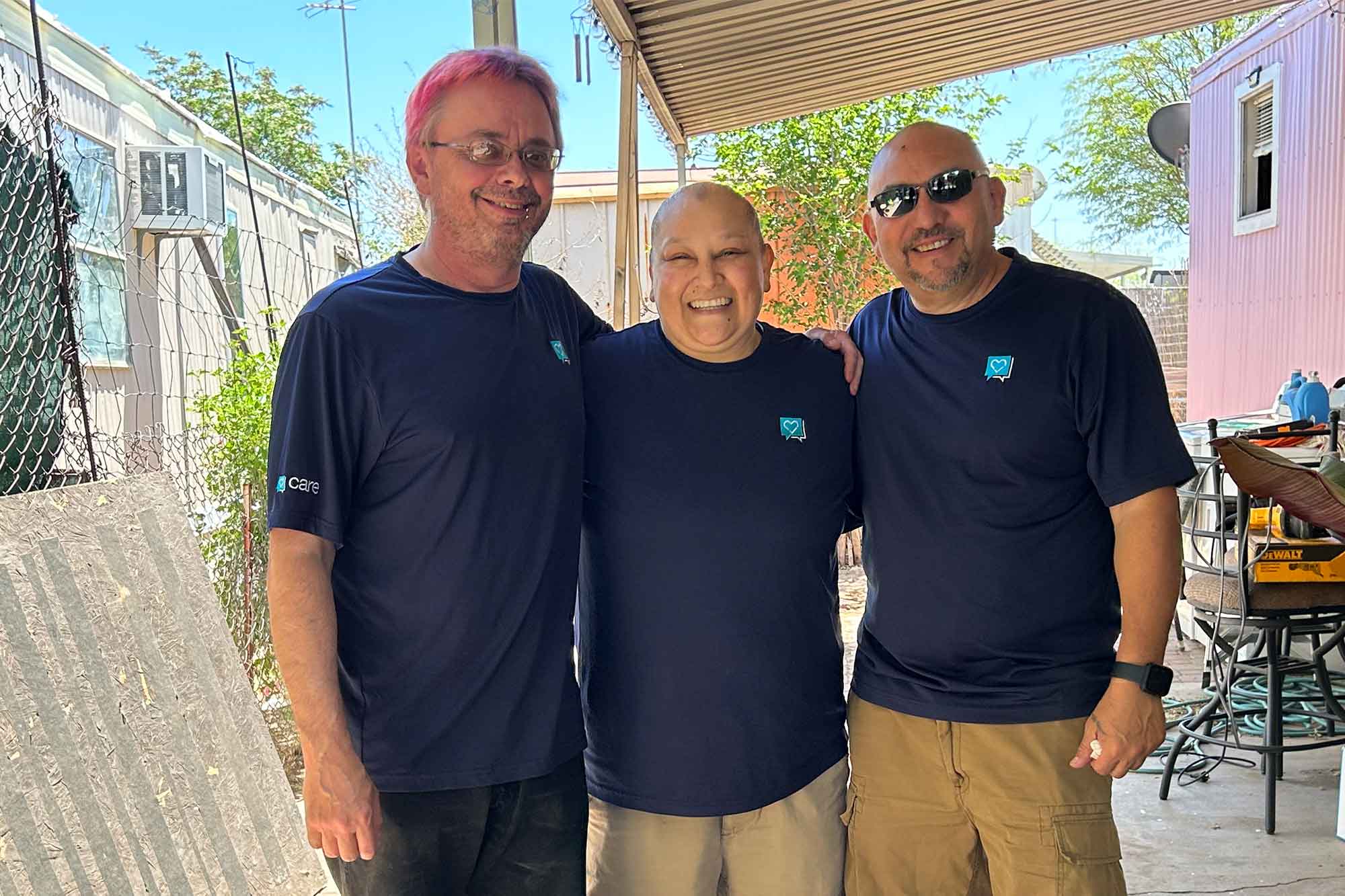Listen to this article
Listen to this article
Loading
Play
Pause
Options
0:00
-:--
1x
Playback Speed- 0.5
- 0.6
- 0.7
- 0.8
- 0.9
- 1
- 1.1
- 1.2
- 1.3
- 1.5
- 2
Audio Language
- English
- French
- German
- Italian
- Spanish
Open text
how the salvation army helped one woman see beyond the surface. in colorado’s roaring fork valley, the glenwood springs service center offers help and hope. cristina ruiz recalls when—not that many years ago—she’d see people panhandling and wonder, “this looks like an able-bodied person. why aren’t they working?”. these days, ruiz, director of the salvation army glenwood springs (colorado) service center and roaring fork valley coordinator, is not so quick to judge. ruiz began working for the salvation army during the pandemic as an emergency caseworker, after a facebook friend shared the opportunity. she said before that time, she had never worked with people experiencing homelessness. with the salvation army, she began hearing their stories and learning about their challenges, including medical situations and mental health. “one thing that strikes me to this day is that i’d had this judgment about these people for all this time,” ruiz said. she remembers when they were called to help a client who had been evicted, whose possessions were on the side of the road. while they talked with him, he showed them his leg, revealing a severe medical condition affecting both his legs and his feet. courtesy cristina ruiz. “that just changed my perspective completely,” she said. “it’s like, ok, i cannot be judging people, because there’s so much more than what i can see… you can’t judge a book by its cover, and that’s what i had been doing.”. ruiz said the encounter shaped the way she serves people experiencing homelessness. in her estimation, the center’s work with eviction and homelessness prevention represents the salvation army’s greatest impact within the roaring fork valley. initially, the area may not appear to need the salvation army’s help. known for its affluence, the service center covers glenwood springs, where it is based, along with aspen, snowmass village, basalt and carbondale. a small resort town, glenwood springs claims the world’s largest mineral hot springs and america’s only mountaintop theme park. yet, need hides beneath the surface. a 2020 the aspen times article shared findings from the economic policy institute (epi), stating the region “ranks as the most unequal metro area in the state with respect to income inequality… the top 1 percent in the glenwood springs metro area rakes in 45 times more than that of the bottom 99 percent.”. individuals often come to the area for resort jobs, and ruiz said they don’t always realize the tourist attractions have two low seasons along with the two high seasons in winter and summer. “yes, it’s a wealthy community,” she said. “there’s work but then there’s also a time when there’s no work and you could be laid off for four weeks, six weeks and you need to save money. and the thing that we’ve seen is that just rents have exploded, like the cost of living has just exploded, there’s nothing affordable. and people are having a really hard time with that.”. small but mighty. the service center has just three employees: ruiz, caseworker martina ramirez and administrative assistant kathy wren. the center’s official client hours are from 9:30 a.m. to 4 p.m. monday, tuesday and thursday; wednesday is their catch-up day and friday is reserved for appointments. “but, outside of client hours, if there are two of us here and someone’s at the door, we will take care of the client,” wren said, emphasizing the importance of having two employees there for safety. “we have a small office and a large service area. we work very hard to keep up with the need and to help as many people as possible. and we try our best to make everybody feel welcome.”. in fiscal year 2022, the glenwood springs service center served 2,121 individuals, providing a total dollar assistance of $176,669 across rent assistance, emergency lodging and utility assistance. additionally, the center provides transportation and prescription assistance. in february, the center held a clothing giveaway at the garfield county fairgrounds, in what they thought would be a two-day event. they received eight and a half pallets of clothing and expected to have items left over, but almost everything went within a few hours on the first day. a number of community volunteers contributed to the event’s success, which ruiz said was “a miracle, the way everything fell into place.”. ruiz said the salvation army partners with many organizations to create hope and transformation for those in need. last year, when an individual needed a prosthetic limb, they reached out to the aspen community foundation, which provided the necessary funds. courtesy cristina ruiz. this year, they went back to the aspen community foundation for someone who needed intraocular lenses for poor vision, and again received funding, along with funds from the christmas wish foundation. catholic charities helped with gas cards and center staff members also contributed, paying for hotel accommodation since the surgery was in denver, a three-hour drive. “things like that, that really do make a difference and impact people’s lives,” ruiz said. “there’s just their gratitude. and that in turn makes us so grateful.”. the center has long maintained a gratitude jar, which recently transitioned to a gratitude kettle—the desk-size salvation army red kettle. staff, and sometimes volunteers and board members, contribute to it, recording the center’s victories, such as getting a person housed or receiving funding for someone’s prosthetic limb. the gratitude kettle is a highlight of the center’s annual christmas luncheon. “after our meal, we will pass the kettle around,” ruiz said. “each one of us gets to read from the kettle and just kind of relive that moment and talk about it and shed some tears of gratitude, and just remember.”. today, the service center continues to fill gaps in the community. a major goal is to start a hotel respite program, replicating the one established by the loveland (colorado) service extension center, which provides hotel stays for people experiencing homelessness who require a medical procedure and need a place to recover. currently, ruiz is seeking funding with local organizations, as well as applying for a federal grant. according to wren, ruiz is working hard to fulfill the salvation army’s mission. “she’s a very goal-oriented person, who puts a lot of energy into the job and learns something new every day. it’s a pleasure to see her blossom into herself.”. ruiz said she’s proud to work for the salvation army. “i wish i had connected to the mission a lot earlier,” she said. “i’m blessed to be a part of it.”. do good:. did you know the salvation army served 31 million americans last year fighting hunger, homelessness, substance abuse and more—all in a fight for good? where can you help? take our quiz to find your cause and learn how you can join in today. caring magazine is a magazine from the salvation army for people who care. people like you! subscribe to the list and join 23k+ people who care. you’ll get weekly inspiration sent right to your inbox in the do good digest. find out more about the work of the salvation army’s service centers.
Open context player
Close context player
Plays:-Audio plays count
how the salvation army helped one woman see beyond the surface. in colorado’s roaring fork valley, the glenwood springs service center offers help and hope. cristina ruiz recalls when—not that many years ago—she’d see people panhandling and wonder, “this looks like an able-bodied person. why aren’t they working?”. these days, ruiz, director of the salvation army glenwood springs (colorado) service center and roaring fork valley coordinator, is not so quick to judge. ruiz began working for the salvation army during the pandemic as an emergency caseworker, after a facebook friend shared the opportunity. she said before that time, she had never worked with people experiencing homelessness. with the salvation army, she began hearing their stories and learning about their challenges, including medical situations and mental health. “one thing that strikes me to this day is that i’d had this judgment about these people for all this time,” ruiz said. she remembers when they were called to help a client who had been evicted, whose possessions were on the side of the road. while they talked with him, he showed them his leg, revealing a severe medical condition affecting both his legs and his feet. courtesy cristina ruiz. “that just changed my perspective completely,” she said. “it’s like, ok, i cannot be judging people, because there’s so much more than what i can see… you can’t judge a book by its cover, and that’s what i had been doing.”. ruiz said the encounter shaped the way she serves people experiencing homelessness. in her estimation, the center’s work with eviction and homelessness prevention represents the salvation army’s greatest impact within the roaring fork valley. initially, the area may not appear to need the salvation army’s help. known for its affluence, the service center covers glenwood springs, where it is based, along with aspen, snowmass village, basalt and carbondale. a small resort town, glenwood springs claims the world’s largest mineral hot springs and america’s only mountaintop theme park. yet, need hides beneath the surface. a 2020 the aspen times article shared findings from the economic policy institute (epi), stating the region “ranks as the most unequal metro area in the state with respect to income inequality… the top 1 percent in the glenwood springs metro area rakes in 45 times more than that of the bottom 99 percent.”. individuals often come to the area for resort jobs, and ruiz said they don’t always realize the tourist attractions have two low seasons along with the two high seasons in winter and summer. “yes, it’s a wealthy community,” she said. “there’s work but then there’s also a time when there’s no work and you could be laid off for four weeks, six weeks and you need to save money. and the thing that we’ve seen is that just rents have exploded, like the cost of living has just exploded, there’s nothing affordable. and people are having a really hard time with that.”. small but mighty. the service center has just three employees: ruiz, caseworker martina ramirez and administrative assistant kathy wren. the center’s official client hours are from 9:30 a.m. to 4 p.m. monday, tuesday and thursday; wednesday is their catch-up day and friday is reserved for appointments. “but, outside of client hours, if there are two of us here and someone’s at the door, we will take care of the client,” wren said, emphasizing the importance of having two employees there for safety. “we have a small office and a large service area. we work very hard to keep up with the need and to help as many people as possible. and we try our best to make everybody feel welcome.”. in fiscal year 2022, the glenwood springs service center served 2,121 individuals, providing a total dollar assistance of $176,669 across rent assistance, emergency lodging and utility assistance. additionally, the center provides transportation and prescription assistance. in february, the center held a clothing giveaway at the garfield county fairgrounds, in what they thought would be a two-day event. they received eight and a half pallets of clothing and expected to have items left over, but almost everything went within a few hours on the first day. a number of community volunteers contributed to the event’s success, which ruiz said was “a miracle, the way everything fell into place.”. ruiz said the salvation army partners with many organizations to create hope and transformation for those in need. last year, when an individual needed a prosthetic limb, they reached out to the aspen community foundation, which provided the necessary funds. courtesy cristina ruiz. this year, they went back to the aspen community foundation for someone who needed intraocular lenses for poor vision, and again received funding, along with funds from the christmas wish foundation. catholic charities helped with gas cards and center staff members also contributed, paying for hotel accommodation since the surgery was in denver, a three-hour drive. “things like that, that really do make a difference and impact people’s lives,” ruiz said. “there’s just their gratitude. and that in turn makes us so grateful.”. the center has long maintained a gratitude jar, which recently transitioned to a gratitude kettle—the desk-size salvation army red kettle. staff, and sometimes volunteers and board members, contribute to it, recording the center’s victories, such as getting a person housed or receiving funding for someone’s prosthetic limb. the gratitude kettle is a highlight of the center’s annual christmas luncheon. “after our meal, we will pass the kettle around,” ruiz said. “each one of us gets to read from the kettle and just kind of relive that moment and talk about it and shed some tears of gratitude, and just remember.”. today, the service center continues to fill gaps in the community. a major goal is to start a hotel respite program, replicating the one established by the loveland (colorado) service extension center, which provides hotel stays for people experiencing homelessness who require a medical procedure and need a place to recover. currently, ruiz is seeking funding with local organizations, as well as applying for a federal grant. according to wren, ruiz is working hard to fulfill the salvation army’s mission. “she’s a very goal-oriented person, who puts a lot of energy into the job and learns something new every day. it’s a pleasure to see her blossom into herself.”. ruiz said she’s proud to work for the salvation army. “i wish i had connected to the mission a lot earlier,” she said. “i’m blessed to be a part of it.”. do good:. did you know the salvation army served 31 million americans last year fighting hunger, homelessness, substance abuse and more—all in a fight for good? where can you help? take our quiz to find your cause and learn how you can join in today. caring magazine is a magazine from the salvation army for people who care. people like you! subscribe to the list and join 23k+ people who care. you’ll get weekly inspiration sent right to your inbox in the do good digest. find out more about the work of the salvation army’s service centers.
Listen to this article











